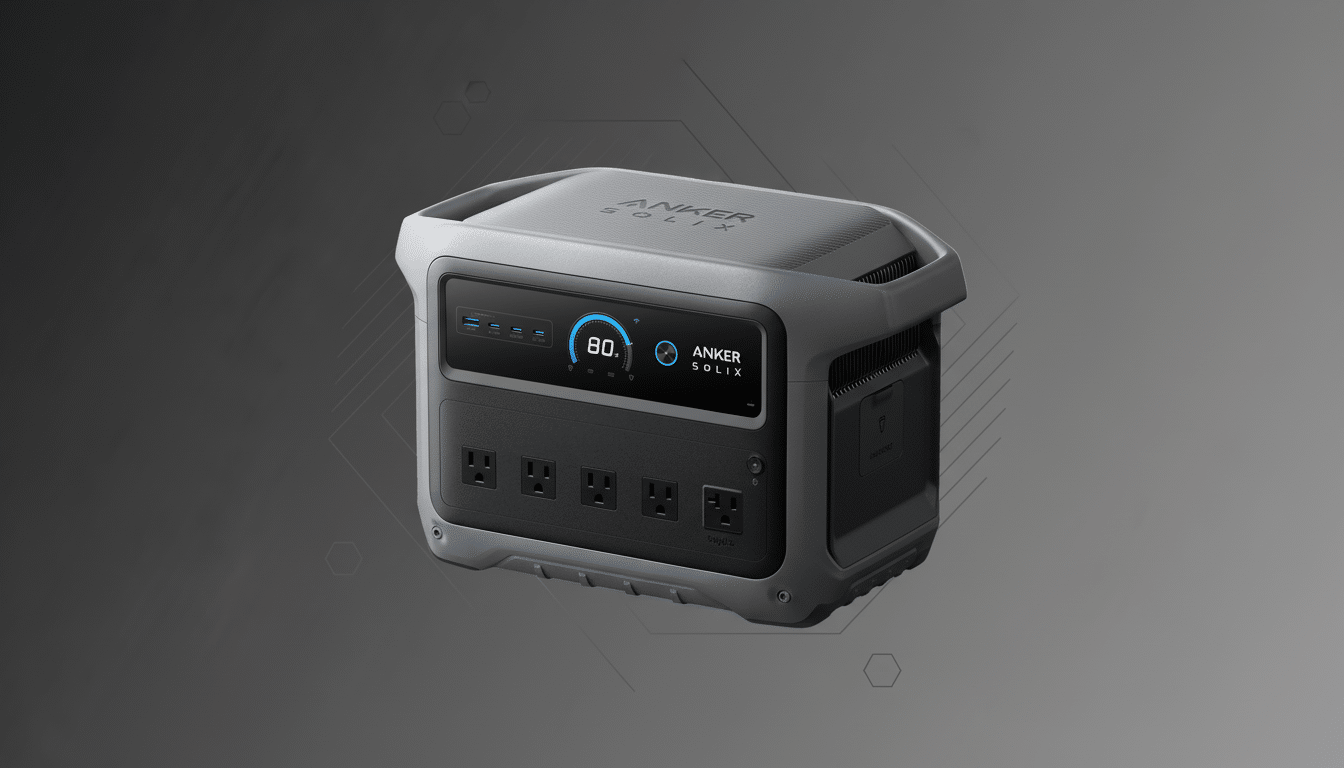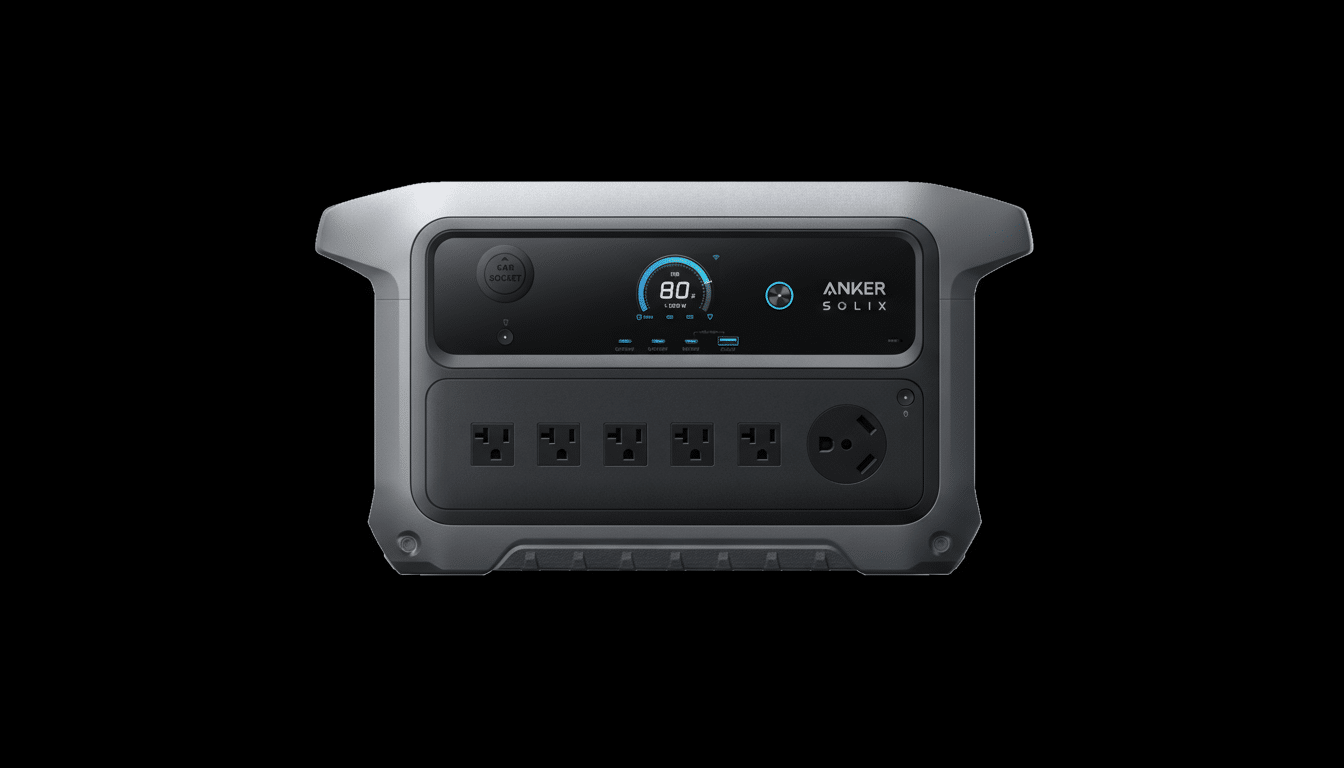The prime Black Friday portable power station deal is here: the Anker Solix C1000 Gen 2 is down to $349 from its usual price of $799, good for a 56% reduction that represents a new low for this smallish, one-kilowatt-hour-class unit. For campers, DIY home backup newbies and anybody who wants to have as close to serious off-grid power as possible without a sprawling setup, that’s the rare sub-$0.35-per-Wh price point it’s tough to turn down.
That translates into reliable, lithium iron phosphate (LFP) storage that recharges in a hurry while offering serious output and intelligent port arrangement at a price point undercutting many lesser-capacity rivals. If you’ve been on the fence about portable power stations, now is the time to buy one.

Why This Black Friday Deal Is So Exciting
Value: at $349, you’re paying about a third of what mid-range 1kWh units ship for during non-sale times. Pricing snapshots from Consumer Reports during the past year indicate that popular 700Wh to 1kWh models have typically been in the $500–$900 range depending on features and brand. That does beat many rival 700Wh packs, while providing more useful energy.
It’s also a well-timed buy. Many Americans still have multiple hours of power outages each year on average, and weather-induced shutdowns continue to increase in frequency. A small 1kWh station can keep necessities powered up long enough to tide over brief outages or make a camping weekend dramatically more livable.
Key Specs and Real-World Performance Explained
The star here is LFP battery chemistry. The National Renewable Energy Laboratory mentions the long cycle life and thermal stability of LFP, and units within this type routinely score in thousands of cycles before dramatic capacity loss. Translation: you can charge and discharge its cells regularly over the years without babying them.
The Solix C1000 Gen 2 supplies a maximum of 1800W of AC output, just right for power-hungry tools and kitchen necessities, and sports a generously spaced bank of AC outlets so you can avoid the charger brick pileup. High-watt laptop charging (up to 140W on the top port) is supported via dual USB-C ports, so a workstation or gaming laptop isn’t a problem. There’s also the usual 12V car socket and more than one USB-A port for accessories.
It charges quickly for its class. Under high-speed AC input, you can expect to be fully charged in less than an hour under ideal conditions, which is one of those rare saving graces during rolling blackouts or between quick turnarounds on camp activities. There’s even MPPT solar input for a top-up from panels, making it a versatile hub for weekend off-grid or backyard backup duties.
Available runtime will depend on load, losses in the inverter, etc., but as a rough guide you can assume 80 to 85% of rated capacity for AC loads. Keeping that in mind, a 100W laptop setup would take about 8 hours to fill up, a 50–70W CPAP can run between 12 and 16 hours, and an average cycling modern refrigerator will chew through between 6 and 10 hours. Powering power tools, projectors, routers, and camera gear should all fit comfortably.
Gen 2 Design Improvements That Enhance Portability
Trimmed down, the Gen 2 weighs in at around 24.9 pounds, and that makes it much easier to carry from room to room or around a campsite than many of its competitors with near-1kWh capacity that exceed 30 lbs.

A redesigned chassis and handle design increase stability when in motion, and the port layout guards against the “one big plug blocks two outlets” issue that haunts earlier models.
Anker’s battery management system keeps an eye on temperature and current, while the LFP cells assist with longevity and safety when under heavy loads. Charging doesn’t make too much noise, thanks to fine-tuned thermal management, so it won’t be the main sound in a quiet room.
How It Compares to Competing 1kWh Power Stations
The Gen 2 is a lighter, more ergonomic version of the original C1000. The previous model’s built-in light bar was convenient during power outages; if that’s a must-have, consider the older version of the controller (which is usually pricier in a sale). The Gen 2 is smaller and cheaper, more appealing to most buyers.
Against competitors, the value margin is greater yet. Eco-centric 1kWh models from brands like EcoFlow and Bluetti normally sell for hundreds more outside of peak promotions. Some have app ecosystems or expandable batteries, but none of them carry a sticker price (that we’ve seen) that combines the same degree of price-to-capacity value without giving up features like quick AC charging and high-watt USB-C for $349.
Who Should Buy This and What to Check Before Purchase
Perfect buyers are campers and overlanders who appreciate having silent power, renters looking for insurance against an outage that would otherwise blow their fridge, modem and lights; creators wanting reliable field power for cameras, lights and laptops. If you’re regularly running 2,000W+ appliances or want whole-home backup, look into a higher-capacity (or expandable) system.
Before you buy, double-check your peak loads and think about a folding solar panel for daytime top-up, and review warranty terms—with Anker’s Solix LFP line often offering multi-year warranties that outlast many of their competitors. To maximize longevity, keep it at around 50% charge and cycle the battery once a month.
Bottom Line: Why This Anker Deal Is Worth Buying
This is the Black Friday portable power station to beat. A 56% price reduction to $349 lands the Anker Solix C1000 Gen 2 squarely in one of today’s rarest territories: high-output, fast-charging, LFP reliability at a budget number. If you’ve been on the lookout for the perfect blend of capacity, portability, and price, get this one.

